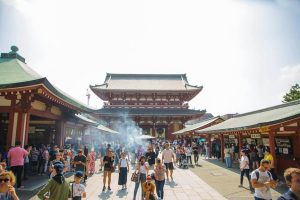Istanbul, the vibrant metropolis that straddles two continents, beckons travelers with its rich tapestry of history, culture, and architecture. From its ancient Roman roots to its Byzantine treasures and Ottoman splendor, the city is a living testament to the many civilizations that have left their mark.
But Istanbul is not solely defined by its past; it embraces the modern world with its skyscrapers and contemporary architecture. Beyond the impressive structures, the city offers a captivating immersion into Turkish culture through bustling markets, diverse cuisine, and warm hospitality.
As we embark on this journey through Istanbul, we will uncover the captivating stories behind its iconic landmarks, unravel the layers of its complex history, and discover why this city continues to captivate the hearts and minds of those who visit.
Istanbul's Ancient Roman Legacy
Istanbul's ancient Roman legacy is an intricate tapestry of architectural wonders, historical significance, and cultural richness that continues to captivate visitors from around the world. The city's Byzantine ruins and Roman architecture stand as a testament to its glorious past and serve as a constant reminder of the civilizations that once thrived here.
One of the most iconic landmarks of Istanbul's Roman legacy is the Hagia Sophia, a masterpiece of Byzantine architecture. Originally built as a Christian cathedral in the 6th century, it later became a mosque and is now a museum. Its grand dome and intricate mosaics are a sight to behold, showcasing the fusion of Roman and Byzantine styles.
Another notable example of Istanbul's Roman legacy is the Basilica Cistern, an underground water storage system that dates back to the 6th century. This subterranean marvel is supported by a forest of ancient columns, creating an ethereal atmosphere that transports visitors to a bygone era.
The Roman Hippodrome, once a bustling arena for chariot races and public gatherings, is now a tranquil square dotted with ancient columns and monuments. This open space serves as a reminder of the city's Roman origins and offers a peaceful retreat amidst the bustling streets of Istanbul.
Istanbul's ancient Roman legacy is a treasure trove of architectural marvels and historical significance. Exploring the Byzantine ruins and Roman architecture in this vibrant city is an enriching experience that allows visitors to delve into the depths of its past and uncover the secrets of its glorious heritage.
Byzantine Treasures: Exploring Istanbul's Religious Heritage
With its rich religious heritage and stunning Byzantine treasures, Istanbul offers a captivating glimpse into the city's spiritual past. As the former capital of the Byzantine Empire, Istanbul is home to a plethora of iconic landmarks that showcase the city's deep connection to its Byzantine roots. One of the most notable aspects of Istanbul's religious heritage is the abundance of Byzantine icons found in its numerous orthodox churches.
These intricately crafted religious artworks serve as visual representations of the divine and hold immense significance for followers of the Orthodox faith. Byzantine icons are known for their vibrant colors, intricate details, and the spiritual messages they convey. They depict various religious figures such as Christ, the Virgin Mary, and the saints, and are believed to have the power to inspire devotion and guide believers in their spiritual journey.
Istanbul's orthodox churches, with their magnificent architecture and ornate interiors, provide a serene and contemplative space for worshippers. From the grandeur of the Hagia Sophia to the tranquility of the Chora Church, each church tells a unique story of Istanbul's religious history. Exploring these sacred spaces allows visitors to immerse themselves in the city's spiritual heritage and gain a deeper understanding of its cultural significance.
Ottoman Splendor: Palaces and Mosques of Istanbul
The opulent palaces and majestic mosques of Istanbul stand as magnificent testaments to the splendor of the Ottoman Empire. Ottoman architecture, known for its grandeur and intricate designs, is showcased in the royal residences and mosques that dot the city.
One of the most iconic Ottoman palaces is the Topkapi Palace, a sprawling complex that served as the residence of the sultans for nearly four centuries. With its ornate courtyards, opulent chambers, and stunning views of the Bosphorus, the palace reflects the power and wealth of the Ottoman rulers.
Another notable royal residence is the Dolmabahçe Palace, a splendid example of Ottoman architecture blended with European influences. Built in the 19th century, it boasts an impressive façade adorned with intricate carvings and a magnificent crystal chandelier that hangs in the ceremonial hall.
The mosques of Istanbul are equally awe-inspiring. The Sultan Ahmed Mosque, also known as the Blue Mosque, is a masterpiece of Ottoman architecture. Its six minarets and stunning blue-tiled interior create a mesmerizing sight for visitors.
The Süleymaniye Mosque, designed by the famed Ottoman architect Sinan, is another architectural gem. Its grand dome and graceful minarets dominate the Istanbul skyline, while the serene courtyard and intricate interior decorations captivate all who enter.
Modern Istanbul: Skyscrapers and Contemporary Architecture
Continuing our exploration of Istanbul's rich architectural heritage, we now turn our gaze towards the modern skyline adorned with sleek skyscrapers and innovative contemporary designs. Istanbul, once known for its historic palaces and mosques, has transformed into a thriving metropolis that showcases the city's commitment to urban development.
Skyscraper designs in modern Istanbul are a testament to the city's ambition and forward-thinking approach. The skyline is dominated by impressive glass and steel structures that reach towards the heavens, symbolizing the city's rapid growth and economic prowess. These towering buildings not only reflect the city's modernity but also serve as architectural marvels, captivating both locals and visitors alike.
Urban development in Istanbul has been a key driver in the construction of these skyscrapers. The city has undergone a remarkable transformation in recent years, with new districts and neighborhoods emerging, each with its own unique architectural style. The contemporary designs seamlessly blend with the historical fabric of the city, creating a harmonious juxtaposition of the old and the new.
As Istanbul continues to evolve, its skyline continues to change. From the iconic Levent district, home to the city's first skyscrapers, to the bustling neighborhoods of Maslak and Atasehir, each area showcases the city's commitment to modernity and innovation. The sleek and futuristic designs of these skyscrapers have become symbols of Istanbul's place in the global architectural landscape.
Immersing in Turkish Culture: Markets, Cuisine, and Hospitality
Immerse yourself in the vibrant Turkish culture as you explore the bustling markets, indulge in the delectable cuisine, and experience the warm hospitality that is synonymous with this captivating country.
Turkish traditions come alive through their music and dance, captivating your senses and transporting you to another world. The rhythmic beats of the darbuka drum and the melodic tunes of the saz, a traditional string instrument, fill the air as locals gather to celebrate their rich cultural heritage.
As you wander through the markets, known as bazaars, you'll be enchanted by the kaleidoscope of colors, scents, and sounds. The Grand Bazaar, with its labyrinthine alleys, is a treasure trove of traditional arts and crafts. Marvel at the intricate patterns of handwoven carpets, admire the delicate beauty of Turkish ceramics, and try your hand at bargaining for unique souvenirs.
No exploration of Turkish culture is complete without indulging in the country's world-renowned cuisine. From succulent kebabs to mouthwatering baklava, Turkish food is a tantalizing fusion of flavors. Sample the aromatic spices, fresh herbs, and locally sourced ingredients that make Turkish cuisine so unforgettable.
Frequently Asked Questions
What Is the Current Population of Istanbul?
The current population of Istanbul is a topic of interest due to its significant growth in recent years. Istanbul's demographics showcase a diverse and vibrant city, with a rich history, culture, and architecture that contribute to its allure.
How Do I Get a Visa to Visit Istanbul?
To obtain a visa to visit Istanbul, you must go through the visa application process and meet the necessary requirements. These include providing relevant documentation, such as a passport, completed application form, and proof of accommodation and travel arrangements.
Are There Any Specific Dress Codes to Be Followed While Visiting Religious Sites in Istanbul?
When visiting religious sites in Istanbul, it is important to follow proper attire etiquette. Modest clothing that covers the shoulders, arms, and legs is recommended, and women may be required to cover their heads with a scarf.
What Are Some Popular Traditional Turkish Dishes to Try in Istanbul?
Turkish cuisine is a fusion of flavors that tantalize the taste buds. Exploring Istanbul's culinary delights offers a chance to indulge in popular traditional dishes such as kebabs, baklava, Turkish delight, and Turkish tea.
Can You Recommend Any Unique Turkish Souvenirs to Buy in Istanbul?
In Istanbul, there are several unique Turkish souvenirs to buy. Some popular options include traditional Turkish coffee sets, intricately designed Turkish carpets, hand-painted ceramics, and of course, the famous Turkish delight.
Conclusion
In conclusion, Istanbul is a captivating city that seamlessly weaves together its ancient Roman legacy, Byzantine treasures, Ottoman splendor, and modern skyscrapers. Its rich history, diverse culture, and stunning architecture make it a true kaleidoscope of beauty and wonder.
From exploring the ancient ruins to marveling at the ornate palaces and mosques, Istanbul offers a unique and immersive experience. The vibrant markets, delectable cuisine, and warm Turkish hospitality further enhance the city's charm. Istanbul truly stands as a testament to the fusion of the past and present, creating a remarkable destination for travelers.






